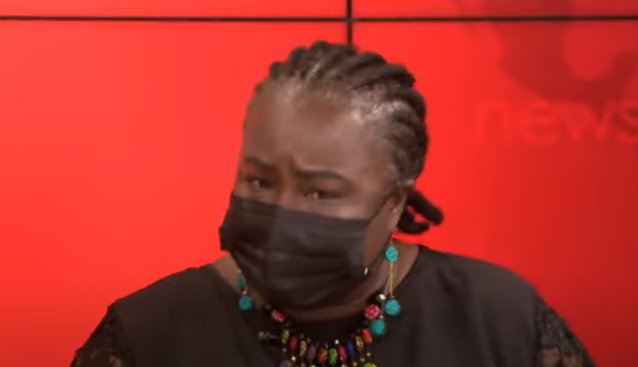
Audio By Carbonatix
Former Dean of the University of Ghana School of Information and Communication Studies, Professor Audrey Gadzekpo, has blamed the absence of laws that explicitly provide for regulation of the media, for the recent arrests of journalists in the country.
Interacting with Newsfile host, Samson Lardy Anyenini, she bemoaned how despite the change in the media landscape, there have been no laws to regulate how the broadcasting media operates.
"The reason we are in this space is that there are no explicit laws governing and regulating the media, particularly the broadcasting media where all these cases come from."
"We are always overtaken by events. We had a changing media landscape. We needed, immediately before we licensed the 684 or so radio stations that have been granted authorization, almost 500 of which are on-air, a law explicitly stating how the terrain should be regulated. So that people who feel aggrieved know clearly where to go for relief. We don't have that," she said on JoyNews on Saturday.
She noted that at the World Radio Day event held on Friday, Professor Amin Alhassan of Ghana Broadcasting Corporation (GBC) pointed out that the law as it stands now, is obsolete.
Her concerns are in relation to the surge in the apprehension of journalists in the country.
Onua TV’s Morning Show host, Blessed Godsbrain Smart, was detained by National Security Operatives after he had been granted bail by the court following his arrest over extortion.
He was detained along with another staff, Eric Dadzie Copperfield, popularly called DJ GH Boy who is also facing charges of abetment to extort.
Not long after, a journalist with Power FM, Oheneba Boamah Bennie, was handed a 14 days jail term for threatening and insulting President Akufo-Addo.
Also, Accra FM’s Bobie Ansah, who accused First Lady, Rebecca Akufo-Addo of theft, was picked up by persons purported to be National Security operatives and has been charged with the publication of false news and offensive conduct.
According to Prof. Gadzekpo, despite numerous promises, successive administrations have failed to provide legislation but rather relied on sections of the law to penalize journalists.
In view of this, she indicated that "it is time to stop making false promises and have laws that regulate."
"If you had a law that spelled sanctions, some of those sanctions could include even shutting down radio stations. So you don't need to put them in jail," she added.
Latest Stories
-
Share of microfinance sector to overall banking sector declined to 8.0% – BoG
10 minutes -
UniMAC mourns with family as the late Nelson Blay Narkotey is laid to rest
20 minutes -
Ukraine, global conflict, and emerging security uuestions in the Sahel
51 minutes -
Either defer new royalty regime or abolish Growth and Sustainability Levy – Chamber of Mines to government
1 hour -
The Suit is a shroud ; the fugu is our resurrection
2 hours -
NDC appoints Inusah Fuseini as Ayariga steps down from Ayawaso East primary probe committee
2 hours -
T-bills auction: Government exceeds target by 246%; interest rates fall sharply to 9.9%
2 hours -
Lands Minister arrives in South Africa for annual African mining investment conference
2 hours -
Frank Quaye Writes: Nullify Ayawaso East primary to protect NDC’s integrity and goodwill
2 hours -
Medeama survive Samartex test to reach FA Cup last eight
2 hours -
Vote- buying, party reform, and the unfinished business of internal democracy in the NDC
2 hours -
Mahama Ayariga withdraws from NDC Ayawaso East probe as Majority Caucus demands cancellation of primary
3 hours -
Majority caucus calls for cancellation of Ayawaso East primary over vote-buying allegations
3 hours -
Jachie-Pramso SHS appeals for support as headmaster hails discipline
3 hours -
NDC committee given February 10 deadline to submit Ayawaso East vote-buying report
5 hours

